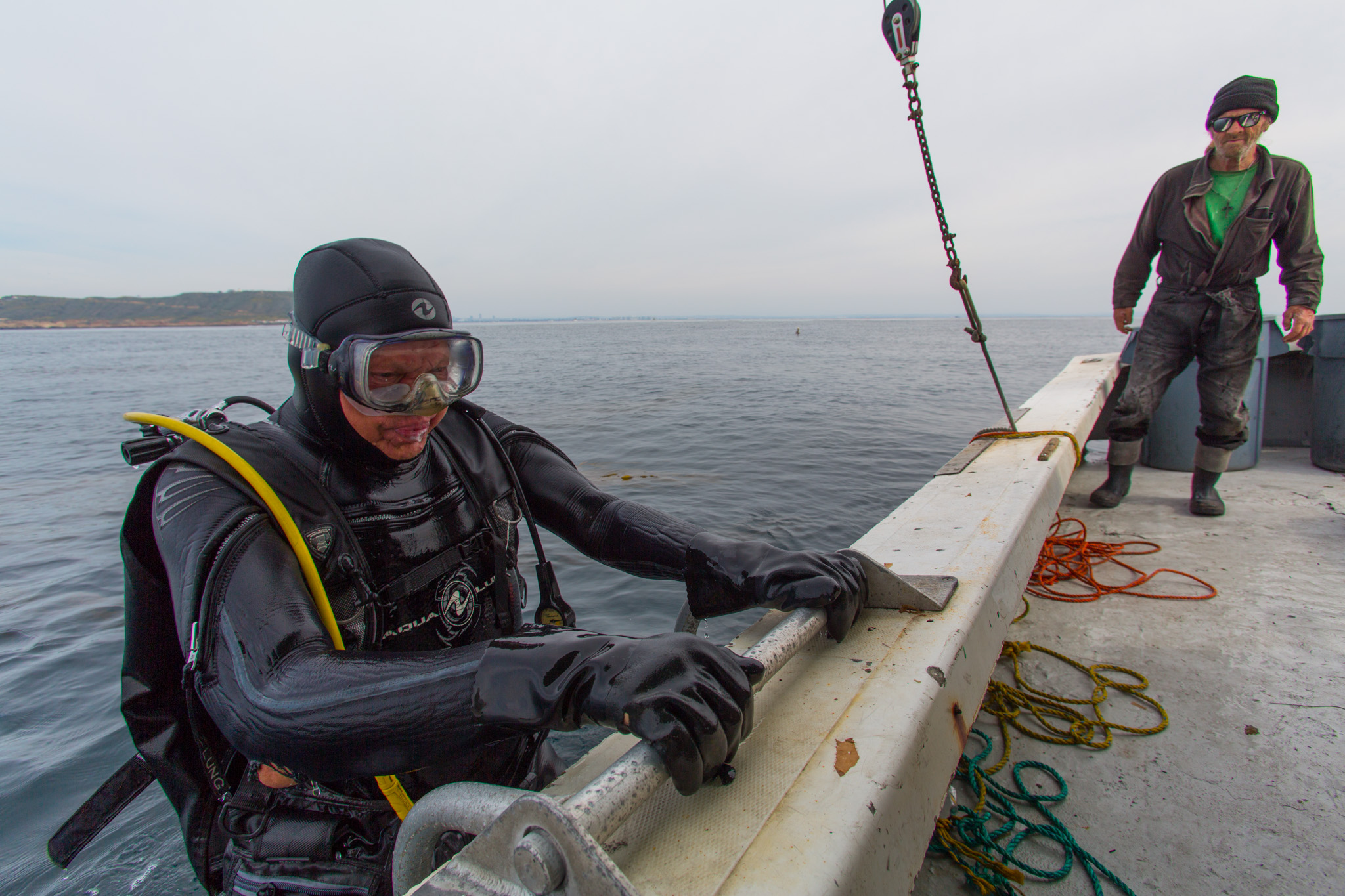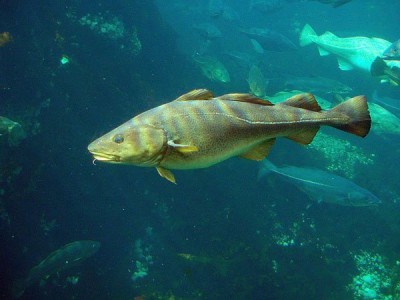Pete Halmay has been fishing off San Diego since the 1960s. At 81 he still dives for sea urchins.
“I love it down there,” he says. “Since I started using nitrox I feel better than ever.” What Halmay does not feel good about is a proposed fish farm off La Jolla.
“A guy named Don Kent has been pushing this for years. They want to grow yellowtail, hamachi, they call it, nice Japanese name, sells better. They say that aquaculture is going to feed the world. I’m all for that in Vietnam and China. But you’re not going to feed the world on $6 a pound hamachi.”
According to a press release issued by the environmental group Don’t Cage Our Oceans, Don Kent, president and CEO of Hubbs-SeaWorld Research Institute, “has made headlines for teaming up with the Pacific6 Enterprises investment group to push for a for-profit factory-style fish farm in federal waters, about a mile away from the La Jolla marine protected area. The Pacific Ocean AquaFarms project, as it is called, aims to produce 5,000 metric tons (or 11 million pounds) of yellowtail fish annually in federal waters, four miles from the California coast. The project would take up 323 acres of space and include 28 submersible pens.”
Halmay sees the proposed La Jolla farm as a money-making venture, not a humanitarian attempt to feed the world, and the money being made will be the money fishermen are making now.
“For years we’ve been fighting imports, then they opened up all these areas for aquaculture. Well, it’s just as bad. It’s like choosing if you want to be hit by a truck or a bus.” If imports are the truck, aquaculture is the bus, Halmay explains.
“A lot of guys around here have gotten into direct marketing. Right now, 8 percent of San Diego restaurants are buying direct from fishermen, and it’s a great thing to be able to put a fisherman’s name on the menu. But this farm is going to grow and diversify, and it’s local, so they’re not going to leave that market alone.”
Halmay is concerned that restaurants will gravitate to the steady supply and consistent prices that aquaculture can deliver. “If the weather is bad and we can’t get out for ten days, what are they going to do? It’s going to be like having a Walmart next to a mom-and-pop store.”







